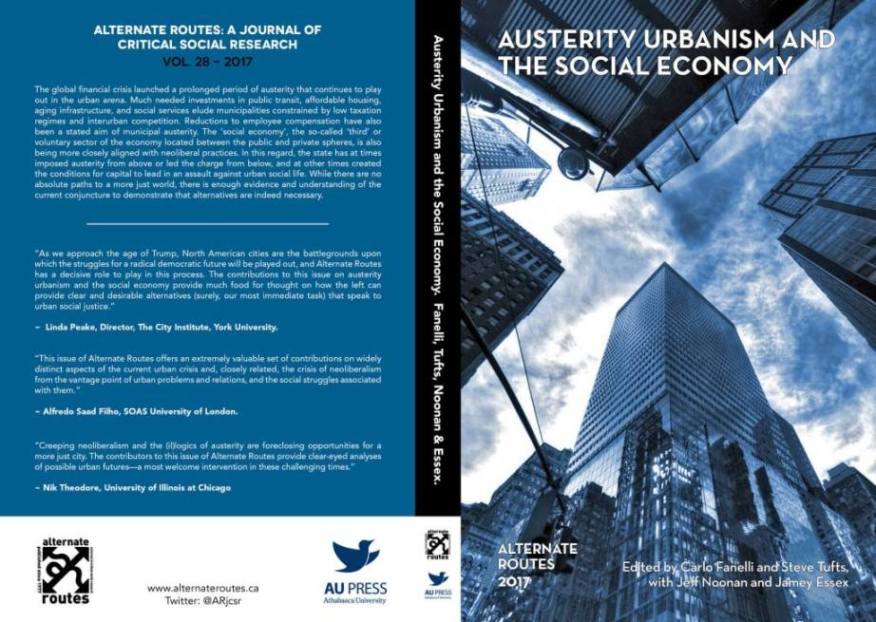Austerity Urbanism and the Social Economy
Abstract
The global financial crisis launched a prolonged period of austerity that continues to play out in the urban arena. Much needed investments in public transit, affordable housing, aging infrastructure, and social services elude municipalities constrained by low taxation regimes and interurban competition. Reductions to employee compensation have also been a stated aim of municipal austerity. The ‘social economy’, the so-called ‘third’ or voluntary sector of the economy located between the public and private spheres, is also being more closely aligned with neoliberal practices. In this regard, the state has at times imposed austerity from above or led the charge from below, and at other times created the conditions for capital to lead in an assault against urban social life. While there are no absolute paths to a more just world, there is enough evidence and understanding of the current conjuncture to demonstrate that alternatives are indeed necessary.Downloads
How to Cite
Fanelli, C., & Tufts, S. (2017). Austerity Urbanism and the Social Economy. Alternate Routes: A Journal of Critical Social Research, 28. Retrieved from https://alternateroutes.ca/index.php/ar/article/view/22428
Issue
Section
Complete Issue
License
Articles are published in Alternate Routes: A Journal of Critical Social Research under the Creative Commons "Attribution/Non-Commercial/No Derivative Works" Canada licence.
The copyright for the articles published in this journal is retained by the authors, with first publication rights granted to the journal. By virtue of their appearance in this open access journal, articles may be used, with proper attribution, in educational and other non-commercial, not-for-profit settings. The submission of a manuscript to Alternate Routes will be taken to mean that the author understands and agrees to the following:
- the manuscript represents original work not previously published;
- the manuscript is not being considered elsewhere for publication in the same language (publication elsewhere in an alternate language does not preclude acceptance of submission to Alternate Routes);
- appropriate written copyright permissions have been secured for republication of any copyrighted material contained in the manuscript;
- copyright for this article is retained by the author, with first publication rights granted to Alternate Routes;
- by virtue of its appearance in this open access journal, it is understood that the article is freely available for use, with proper attribution, for educational and other non-commercial purposes;
- reuse of the article for commercial purposes by anyone other than the author requires permission of the author;
- the author agrees to cite Alternate Routes as a source whenever h/she later republishes or reuses the article in other platforms.


